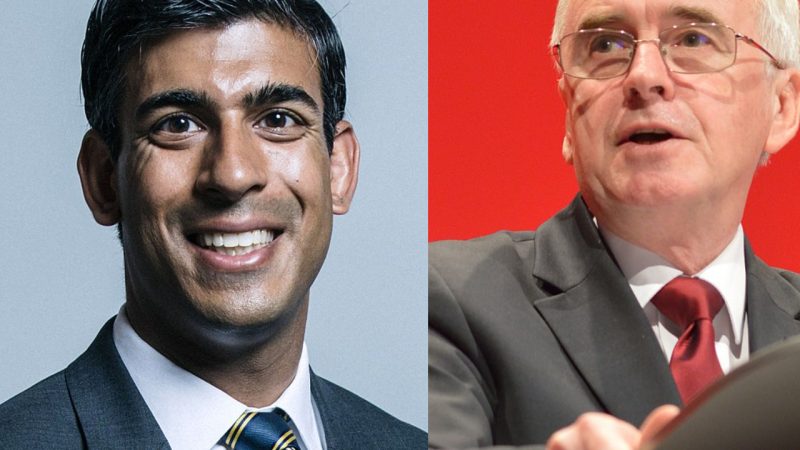The same Tories who ripped into Corbyn's tax rise plans are silent about Sunak's.

According to the Financial Times and others, Chancellor Rishi Sunak is considering raising corporation tax to 25% in the next budget.
This would almost take it back to what it was when the Tories took over in 2010 (28%) before George Osborne gradually reduced it to its curent rate of 19%.
It would also almost fulfill Labour manifesto promises from 2017 and 2019, which were to raise corporation tax to 26%.
Unlike Sunak though, Labour also planned to reintroduce the lower small profits rate of corporation tax to protect small businesses.
Despite this exemption, Labour’s plan was treated much more critically by the press, think-tanks and the Tories themselves.
Its most prominent critic in 2019 was Boris Johnson himself, who simply lied about it, claiming it would be the highest rate in Europe.
In 2017, many reporters picked up on criticism of the tax rise from the Institute for Fiscal Studies (IFS) think tank. They said an increasing rate would discourage investment, depress economic activity and lead to fewer jobs and lower wages.
Left Foot Forward columnist Prem Sikka and then Labour adviser criticised the assumptions of the IFS’s analysis at the time.
Now, that same IFS is much less critical of Sunak’s corporation tax rise than it was McDonnell’s, as the tweet below from their head of tax shows.
Other critics, like banker Dame Helena Morrissey claimed such a rise would help crash the stock exchange and the pound.
The Financial Times’s Lex column claims the rise would lead companies to “trim investment and switch activities offshore, reducing the tax base”.
Now, the same publication has reported “Sunak plans corporate tax rise to bolster public finances” and said “each percentage point increase in corporation tax raises £3.3bn”.
The Conservative press office claimed the corporation tax rise would cost jobs for small businesses, ignoring Labour’s plan to make them exempt.
Many Conservative MPs joined in the criticism. Matt Hancock, then an eccentric digital and culture minister, counter-intuitively claimed that a corporation tax rise would actually cost money.
To make this argument, repeated by many of his colleagues, he made the mistake of assuming that because two things are correlated then one is causing the other.
The tax take rose because, years on from the financial crash, the world economy was finally growing again so there were more profits to tax. This had little to do with the UK’s corporation tax level.
By Hancock’s flawed logic, Sunak’s tax rise will actually cost money. Can we expect him to ask how he’ll pay for it? Or will this tweet be quietly deleted?
Joe Lo is a co-editor of Left Foot Forward
To reach hundreds of thousands of new readers we need to grow our donor base substantially.
That's why in 2024, we are seeking to generate 150 additional regular donors to support Left Foot Forward's work.
We still need another 117 people to donate to hit the target. You can help. Donate today.



